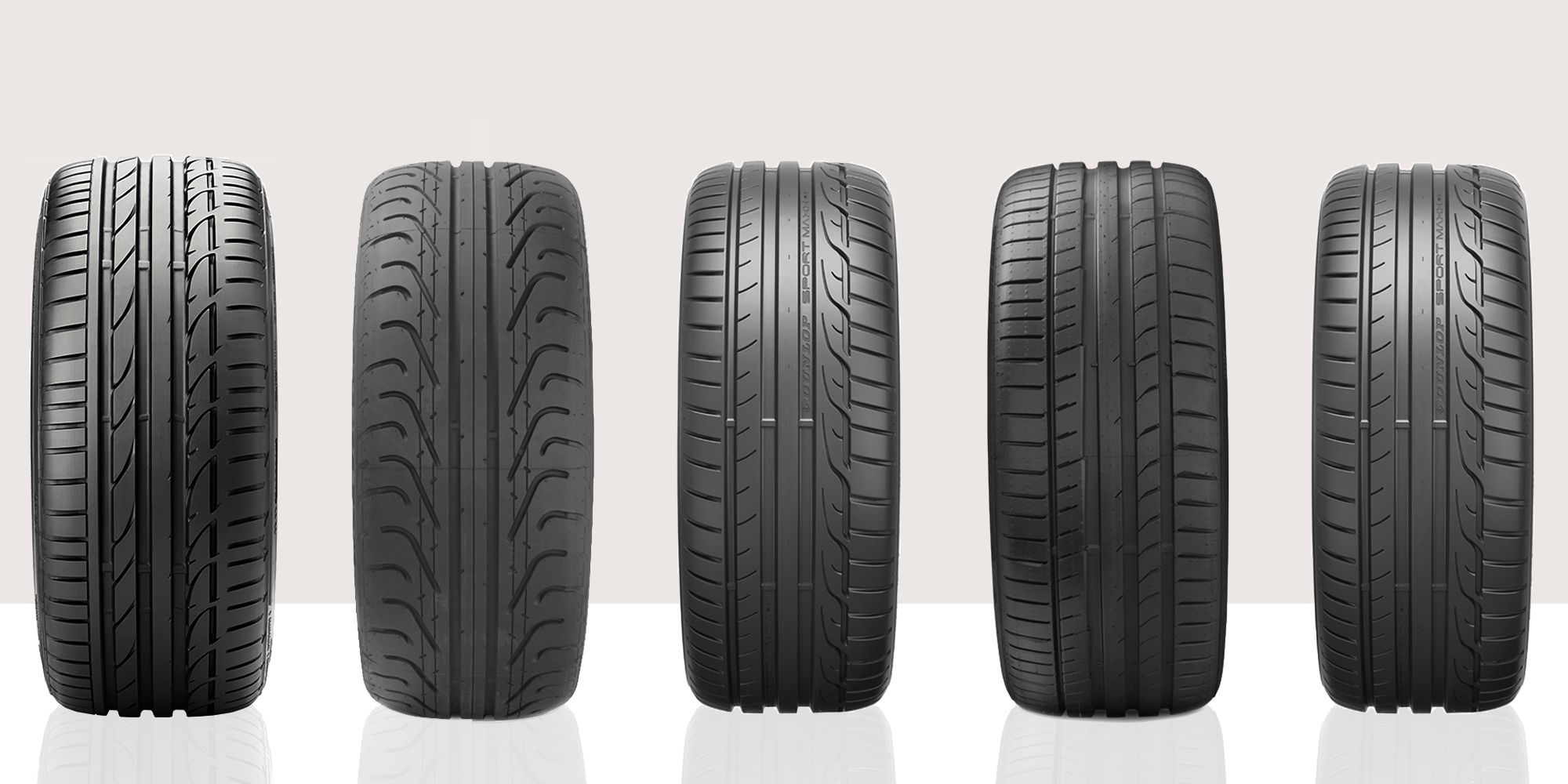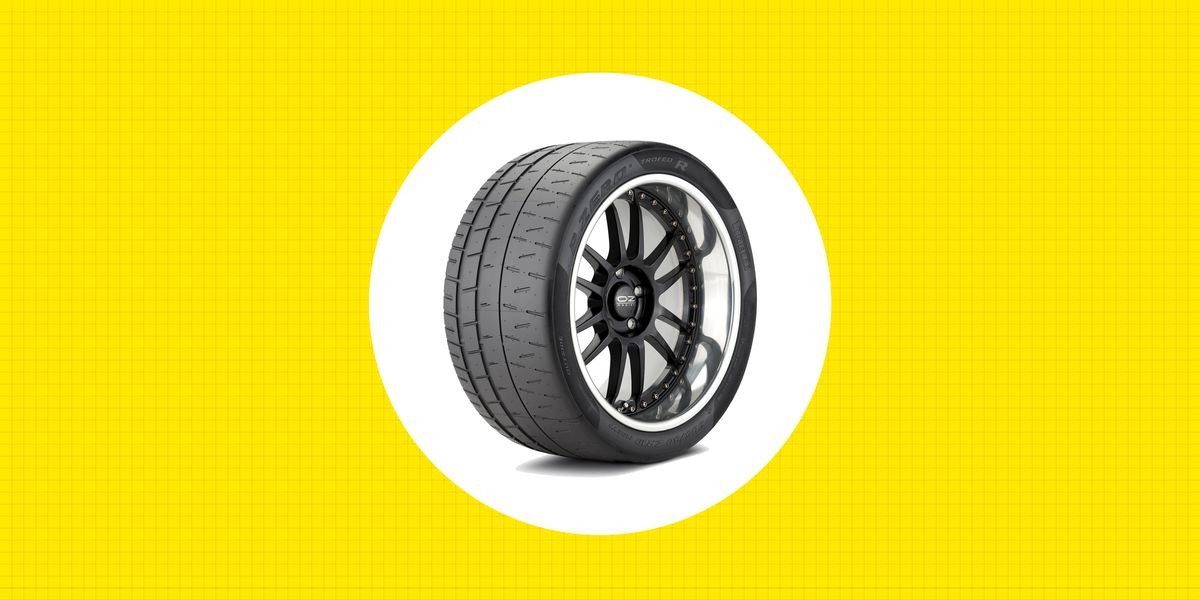Intro-
Are you a fan of sports cars? High-performance tires for sports cars can take your driving experience to a whole new level of excitement. These specialized tires are designed to enhance the performance and handling of your vehicle. They provide superior grip and control on the road. Whether you’re racing on a track or cruising down the highway, high-performance tires can deliver the ultimate driving experience.
When it comes to sports cars, performance is key, and the right set of tires can make all the difference. High-performance tires are engineered with advanced technology and materials. This optimizes traction, cornering ability, and braking performance. These tires allow you to unleash the full potential of your sports car. They have high-speed capabilities and responsive handling.
Why are high performance tires for sports cars important?
High-performance tires offer exceptional performance, but they also boast a sleek and stylish design that complements the overall aesthetics of your sports car. From their aggressive tread patterns to their low-profile sidewalls, these tires exude a sporty and dynamic look. So, not only will your sports car perform like a champion, but it’ll also turn heads wherever you go.
So, whether you’re a speed enthusiast or simply want to enhance the performance and style of your sports car, high-performance tires are the way to go. They combine precision engineering, cutting-edge technology, and eye-catching design to deliver an exhilarating driving experience. Get ready to hit the road with confidence and unleash the full potential of your sports car with high-performance tires.
Looking for high-performance tires to enhance your sports car’s performance?

Source: hearstapps.com
High-Performance Tires for Sports Cars: Unleashing the Power of Speed
When it comes to sports cars, performance is paramount. And one crucial element that can make or break the driving experience is the choice of tires. High-performance tires not only enhance the grip on the road but also optimize the handling and control. They allow drivers to unleash the full power of their sports cars. Let us dive into the world of high-performance tires. We will explore the features, benefits, and tips for selecting the perfect set for your sports car.
1. The Anatomy of High-Performance Tires
High-performance tires are meticulously engineered to deliver exceptional performance in terms of speed, handling, and braking. They are typically characterized by a wider tread, low-profile design, and softer rubber compounds. The wider tread provides a larger contact patch with the road, increasing traction and grip. The low-profile design enhances stability and responsiveness, allowing for precise steering control. The softer rubber compounds offer superior grip and traction, even in challenging road conditions or demanding driving scenarios.
In addition to these key features, high-performance tires often incorporate advanced technologies like asymmetric tread patterns, which optimize performance for different driving situations. This allows the tires to excel in both dry and wet conditions, providing consistent performance in various weather conditions.
Another essential aspect of high-performance tires is their ability to withstand high speeds. They are constructed with reinforced sidewalls and advanced internal structures to handle the intense forces generated during high-speed driving. This ensures stability, durability, and enhanced safety at elevated speeds, giving drivers the confidence to push the limits of their sports cars.
2. The Benefits of High-Performance Tires
Investing in high-performance tires for your sports car can unlock a myriad of benefits that elevate the overall driving experience. One of the primary advantages is improved handling. With high-performance tires, you can navigate corners with precision and confidence, as they offer enhanced grip and responsiveness. This translates into better control over your sports car, allowing you to push it to its limits while maintaining optimal stability.
Another significant benefit is the improved braking performance. High-performance tires are designed to provide shorter braking distances, ensuring a quicker and safer stopping response. Whether it’s a sudden obstacle or the need to decelerate rapidly, these tires offer superior braking capabilities, enabling you to rely on their performance in critical situations.
Furthermore, high-performance tires offer enhanced traction, especially on dry roads. This means that you can accelerate more efficiently, leveraging the full power of your sports car without worrying about wheel spin or loss of control. The increased traction also contributes to a greater sense of confidence and enjoyment behind the wheel, whether you’re cruising on the highway or conquering a twisty mountain road.
3. Tips for Choosing High-Performance Tires
When it comes to selecting the right high-performance tires for your sports car, there are a few key considerations to keep in mind. The first is the tire size. It’s crucial to choose a size that is compatible with your sports car’s specifications and recommended by the manufacturer. The correct tire size ensures optimal performance and safety.
Next, consider the driving conditions you typically encounter. Are you mainly driving on dry roads or do you frequently encounter wet or even snowy conditions? This will determine the tread pattern and compound type that best suit your needs. If you live in an area with diverse weather conditions, look for high-performance tires with excellent wet grip capabilities and all-season performance.
Additionally, it’s essential to consider your driving style and preferences. Are you a spirited driver who enjoys pushing the limits, or do you prioritize comfort and a smooth ride? High-performance tires come in different variations, some focusing more on performance and others offering a balance of performance and comfort. Understanding your priorities will help guide your tire selection.
The Advancements in High-Performance Tires
High-performance tires have evolved significantly over the years, thanks to advancements in tire technology and the relentless pursuit of performance. These advancements have led to enhanced grip, improved durability, and increased safety for sports car enthusiasts. Let’s explore some of the noteworthy advancements in high-performance tire technology.
1. Run-Flat Technology: Eliminating the Hassle of Flat Tires
One of the revolutionary advancements in high-performance tires is the introduction of run-flat technology. Run-flat tires are designed with reinforced sidewalls that support the weight of the vehicle even when the tire is completely deflated. This eliminates the need for a spare tire and allows drivers to continue driving for a limited distance at a reduced speed, providing convenience and peace of mind in the event of a puncture or blowout.
Run-flat tires are particularly beneficial for sports car owners who value performance and don’t want to compromise on handling and control. With run-flat technology, drivers can maintain control over their sports cars even in the event of a tire failure, ensuring safety and minimizing disruptions to their driving experience.
2. Tread Compound Innovations: Balancing Grip and Longevity
Another area of advancement in high-performance tire technology lies in the development of innovative tread compounds. Tire manufacturers have been able to strike a delicate balance between grip and longevity, creating compounds that offer exceptional traction and grip without sacrificing durability.
Advanced silica blends and other additives have been incorporated into the rubber compounds to enhance traction on both wet and dry surfaces. These compounds optimize the friction between the tire and the road, ensuring maximum grip during acceleration, braking, and cornering.
At the same time, these advancements in tread compounds have also resulted in longer tread life, providing sports car owners with the best of both worlds – high performance and longevity. With these improved compounds, drivers can enjoy the benefits of high-performance tires for an extended period before needing to replace them.
3. Noise-Reducing Technologies: Enhancing Ride Comfort
Noise has long been a concern for sports car owners, as high-performance tires tend to generate more road noise compared to standard tires. However, tire manufacturers have made significant strides in reducing noise levels without compromising performance.
Various noise-reducing technologies have been developed and integrated into high-performance tires to enhance ride comfort. These technologies include innovative tread patterns, noise-absorbing materials, and advanced tire constructions. These advancements have resulted in quieter rides, allowing sports car enthusiasts to enjoy their powerful machines without the annoyance of excessive noise.
The continuous advancements in high-performance tire technology ensure that sports car owners can have the best of both worlds – exceptional performance and a comfortable driving experience. Whether it’s improved grip, extended tread life, or reduced noise levels, these advancements contribute to making high-performance tires a vital component in maximizing the potential of sports cars.
Key Takeaways: High-Performance Tires for Sports Cars
1. High-performance tires are designed to provide optimal grip, traction, and handling for sports cars.
2. These tires are constructed with special rubber compounds and tread patterns that maximize performance on both dry and wet surfaces.
3. They offer enhanced cornering abilities, allowing sports car drivers to take tight turns at higher speeds with confidence.
4. High-performance tires also contribute to improved braking performance, allowing for shorter stopping distances.
5. It is important to choose the right high-performance tire for your sports car, considering factors such as tire size, speed rating, and driving conditions.
Frequently Asked Questions
Welcome to our frequently asked questions section on high-performance tires for sports cars! Whether you’re a car enthusiast or a professional driver, we’ve got you covered with some key information. Let’s dive into the most common queries about high-performance tires!
1. What are high-performance tires, and what makes them different from regular tires?
High-performance tires are specifically designed with advanced technology to enhance the performance of sports cars. These tires offer superior grip, handling, and responsiveness, allowing the driver to navigate corners and curves with confidence. They feature a unique tread pattern and compound that optimize traction and control, even at high speeds. Compared to regular tires, high-performance tires have stiffer sidewalls and a softer compound, enabling them to provide improved grip and better braking performance.
In addition, high-performance tires often have a larger footprint, allowing for maximum contact with the road, which translates to enhanced stability and control. The construction and materials used in these tires are engineered to withstand the intense forces and heat generated during performance driving, making them more durable and resistant to wear.
2. Are high-performance tires suitable for everyday driving?
While high-performance tires excel in terms of performance, they may not be the ideal choice for everyday driving. These tires are specifically designed for sports cars and high-performance vehicles that require peak handling and grip capabilities. As a result, they prioritize performance over other factors such as noise reduction, comfort, and longevity.
If you use your sports car solely for daily commuting or leisurely drives, you might be better off with all-season or touring tires. These options offer a more balanced approach, providing good performance in various weather conditions, comfort, and a longer lifespan. However, if you still desire improved handling and responsiveness, you can opt for high-performance all-season tires, which offer a compromise between performance and everyday usability.
3. How long do high-performance tires typically last?
The lifespan of high-performance tires can vary depending on several factors, including tire design, driving habits, road conditions, and maintenance. On average, high-performance tires tend to have a shorter lifespan compared to regular tires, typically ranging from 20,000 to 40,000 miles.
To maximize the longevity of your high-performance tires, it’s crucial to adhere to proper maintenance practices. Regularly check the tire pressure, rotate the tires according to the vehicle manufacturer’s recommendations, and maintain proper wheel alignment. Additionally, driving habits, such as aggressive acceleration and braking, can accelerate tire wear. Therefore, it’s important to drive responsibly and avoid excessive speed and harsh maneuvers.
4. Can high-performance tires be used in wet or snowy conditions?
High-performance tires are primarily optimized for dry road surfaces and warm temperatures. While they can provide decent performance on wet roads, they may not offer the same level of grip and handling as specialized wet-weather tires. The unique tread pattern and compound of high-performance tires are designed to maximize traction on dry roads, potentially compromising their performance in wet conditions.
In snowy or icy conditions, high-performance tires are generally not recommended at all. They lack the necessary tread pattern and compound to provide sufficient traction in such conditions. It’s best to opt for dedicated winter tires that are specifically designed to deliver traction and control in snowy or icy environments. Winter tires feature deeper treads and special rubber compounds that remain flexible in cold temperatures, ensuring better grip and enhanced safety.
5. Can high-performance tires be mixed with regular tires on the same vehicle?
While it’s not ideal, mixing high-performance tires with regular tires on the same vehicle is possible. However, it can lead to imbalanced handling and compromised performance. When different types of tires are combined, the specialized characteristics and capabilities of high-performance tires may be diluted by the regular tires.
If you need to replace only one or two tires and the remaining tires are still in good condition, it’s recommended to match the new tires with the existing ones as closely as possible. This ensures better uniformity and balanced performance. However, for optimal performance and safety, it’s best to replace all four tires at the same time with a matching set of high-performance tires.

Source: hearstapps.com
These are the BEST UUHP TIRES you can buy for your car in 2022/23!
Summary:
High-performance tires for sports cars are specially designed to improve safety and enhance performance. They have a unique tread pattern and rubber compound that provides better grip and control, especially at high speeds. These tires not only increase the braking and acceleration capabilities of sports cars but also enhance their handling and cornering abilities. They are essential for sports car enthusiasts who want to experience the full potential of their vehicles. However, it’s important to note that these tires wear out faster and are more expensive than regular tires. So, it’s crucial to choose the right high-performance tires for your sports car to ensure optimal performance and safety.
In conclusion, high-performance tires for sports cars are a great investment for sports car owners who want to maximize their driving experience. These tires offer improved safety, performance, and control on the road. However, it’s essential to consider factors such as price and tire wear when selecting the right high-performance tires for your sports car. So, if you’re a sports car enthusiast looking to enhance your driving experience, upgrading to high-performance tires may be the way to go.
